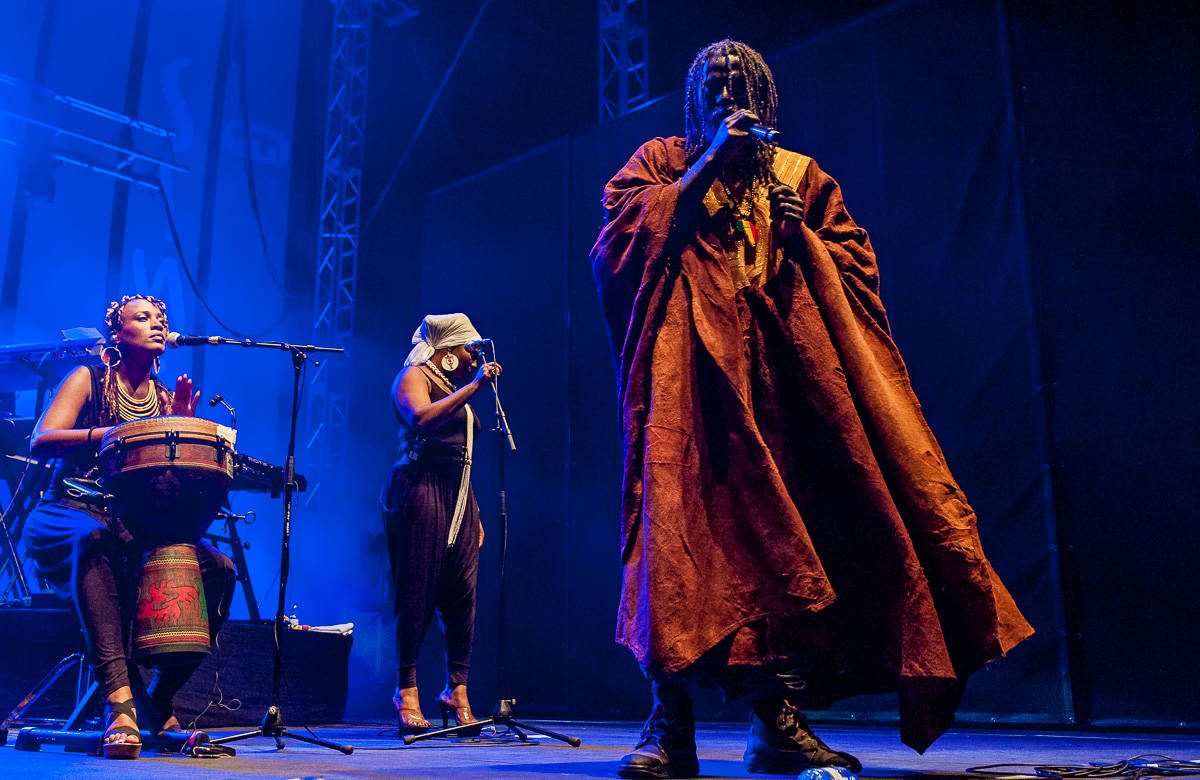For the past two decades, reggae has played a leading role in Côte d’Ivoire’s music scene. Alpha Blondy, who like many Ivorian artists sings in Dioula, the Mande trading language, was the first on the African scene to use reggae as a means to express his concerns to African urban youth. Born Seydou Koné, his life is something of a legend.
He never knew his natural father, and grew up playing French pop and rock as a teenager. He discovered reggae when he was 20 at a Burning Spear concert in New York and began to experiment with the music and Rastafarianism. Taken back to Côte d’Ivoire, he was locked up by his stepfather, but managed to escape and change his name to Alpha Blondy. In 1983, Fulgence Kassy turned him into an instant urban star when he invited Blondy to appear on his TV programme First Chance. Signing with EMI France in 1984, he recorded in Jamaica at the Tuff Gong studio with the Wailers, then gained international recognition with some powerful stage performances with his band The Solar System. Based in Paris for years, Blondy settled back in Abidjan in the mid-1990s. His flourishing record and stage career boosted reggae’s appeal in Côte d’Ivoire, with many reggae singers attempting to emulate his success.
Some, like Ismaël Isaac, have achieved a certain international success; others, like Serge Kassy, are well received on the local scene. Tiken Jah Fakoly, the most popular new reggae singer in Abidjan, is now making his presence felt abroad with messages of unity and good acoustic arrangements. Together with Alpha Blondy, Fakoly is the driving force behind African reggae, having acquired an evergrowing international following and a number of awards since the runaway success of his third album, Mangécratie, released in 1996.
Tiken’s music is inspired by the Yagba of the Malinké in Odienné in northern Côte d’Ivoire, where he grew up. His work bears witness to the suffering of his fellow citizens and is rooted in the reality of a country torn apart by strife. He addresses the general malaise in Africa and roundly condemns the iniquities of globalization.
Tiken is a non-violent rebel who denounces the ineptness of African despots, their Western masters and the multinationals who pillage the continent. The sharpness of his lyrics and the thorny issues he tackles have made him the mouthpiece of young Africans, who have been waiting for some sort of concrete action from African politicians for over forty years. As for rap, despite the fact that hip-hop was growing among Côte d’Ivoire’s youth from the mid-1990s on, local producers showed little interest in making albums. Until that is, a sell-out concert at one of Abidjan’s biggest venues, the Palais des Congrès, where the two local leaders of the rap scene met in a challenge. After this event, rap was taken more seriously by the local music businessmen, with artists like All Mighty, Angelo and RAS among the more prominent stars.


